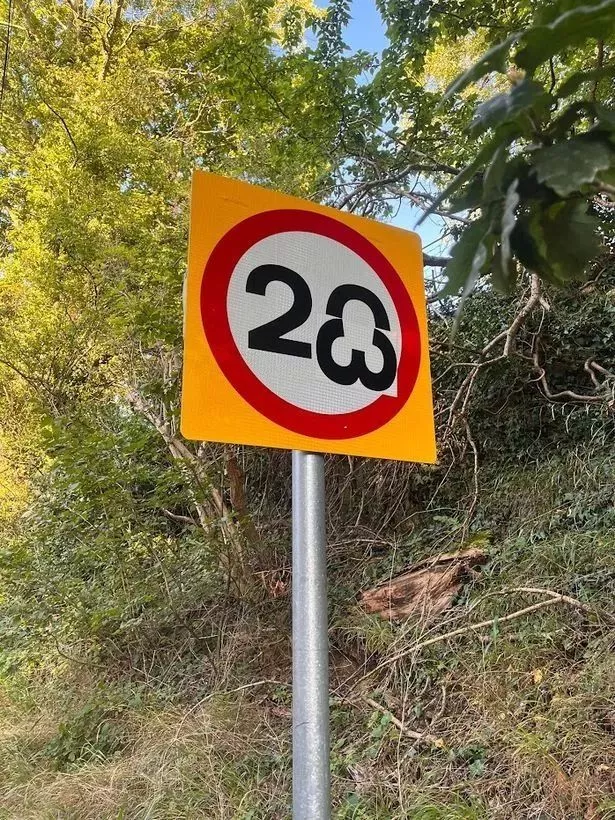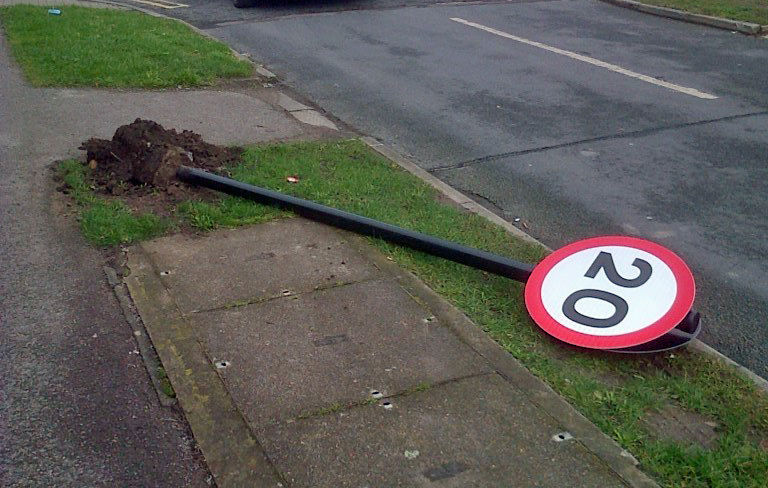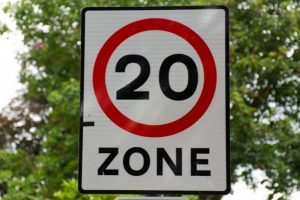AS WALES adjusts to a slower pace on its roads after the Welsh Government’s decision to impose a blanket 20 mph speed limit, some motorists are taking matters into their own hands. Within mere hours of the new speed limits being introduced, a van was spotted in Ceredigion removing the new 20 mph signs in towns including Cribyn, Llanon, and Aberaeron.
Elizabeth Evans, a Ceredigion county councillor and Aberaeron town councillor, remarked, “While opinions on the 20 mph limit introduction in Wales are varied, it should be noted that Ceredigion County Council received funding from the Welsh Government for the signs. However, this funding is a one-off, and those removing the signs are simply adding to the council tax burden for Ceredigion residents.”
The new signs come with an estimated cost of £33m, with funds divided amongst local authorities to replace old 30 mph signs. The Welsh Government argues that this expenditure will be balanced out by enhanced road safety, potentially saving £58m over three decades through decreased emergency service calls and hospital treatments.
However, not everyone is convinced about the necessity of these new limits. One Aberaeron local remarked, “The town centre is naturally slow during busy times. Most drivers already adapt their speed to the conditions, so these new signs seem redundant.”
In a fiery debate on Wednesday, the Welsh Government committed to continuously monitor the effects of the new 20 mph speed limit. This comes after a Plaid Cymru amendment, supported by Labour ministers and backbenchers, successfully pushed for continuous review. Conservative Member of the Senedd (MS), Tom Giffard, criticised the move, suggesting a “war on motorists”. Meanwhile, Welsh Conservatives are calling for 20 mph limits outside schools and hospitals, but not as a default on all restricted roads.
The amended motion has urged the government to allow local authorities more flexibility in implementing speed limits and ensure they have the necessary funds to do so.
Meanwhile, a study by Edinburgh Napier University has shown that the rollout of 20mph speed limits across the Scottish Borders has reduced average speeds by 3mph.
With previous research showing that there is an average 4% reduction in collisions with each 1mph reduction in average speed on rural roads, the study demonstrates the significant knock-on effect the new speed limit is likely to have, particularly when seen within the context of the national Road Safety Framework to reduce deaths and serious injuries to zero by 2050.
The trial, which took place across 97 villages and towns in the Borders since October 2020, showed that 85% of drivers dropped their speed by 3mph. It also showed that the largest speed reductions were observed in locations where higher speeds had been seen in the past – with those areas seeing an average reduction of 5.4mph.
Significantly, the report also concluded that the change in driver behaviour continued well after the beginning of the trial, with average speeds still well below previous levels eight months after the start of the trial.
The trial in the Borders is the first one in the world to look at the effects of a 20mph speed limit on such a large, rural area and the results will be studied by governments, local authorities and organisations across the UK and the world.
The study also comes just days before the Welsh Government is due to make Wales the first nation in the UK to adopt 20mph as the default speed limit on restricted roads – generally roads that are located in residential and built-up areas where there are significant numbers of pedestrians.
Professor Adrian Davis of Edinburgh Napier’s Transport Research Institute who led the research said: “Previous research has shown that 20mph speed limits are effective in large towns and cities in both reducing speed driven and in reducing casualties. Our work looking at speed changes reveals that speed reduction to 20mph from 30mph in rural settlements produces similar results for speed reduction as in urban areas. Communities which have been asking for action to reduce speeding have been given a response, in this case by Scottish Borders Council who have taken action to address the dangerous and anti-social impacts of inappropriate speed. Our research findings consequently support the switch in Wales this coming Sunday from default 30mph to default 20mph speed limits.”



















